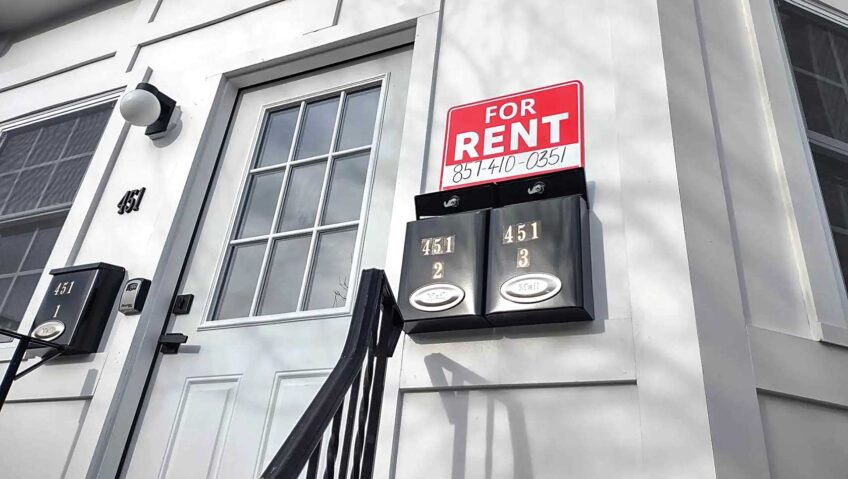Life without parole sentences perpetuate the cycle of “generational poverty, violence and trauma” and must end, declared state Sen. Liz Miranda, who is sponsoring a bill in the state legislature to end the draconian practice.
“This is death by another name,’’ said Miranda.
The senator, who spoke during a Joint Committee on the Judiciary hearing on July 25, is leading the legislative effort to abolish life without parole sentences to address Massachusetts’s disproportionate prison population.
Miranda has been at the forefront on such reform issues since her brother was shot and killed in 2017. She has openly said she is against a life sentence without parole for the alleged murderer.
“I live and represent the most incarcerated and over-policed corridor in the Commonwealth,” Miranda told the Banner. “We’re over-policed and over incarcerated, and yet we’re still not safe.”
The bill Miranda and Representative Christopher Worrell are introducing — called “An Act to Reduce Mass Incarceration” — would allow people serving life sentences a chance to go before the parole board after serving 25 years.
It also calls for the Massachusetts Department of Correction to establish a restorative justice program in the prisons for anyone sentenced to more than 25 years in prison to develop a plan of reconciliation and reform.
During last week’s hearing Miranda said life without parole sentencing should not have replaced the death penalty, which was abolished in Massachusetts in 1984.
“I do not believe justice is a system that has over-policed and over-sentenced thousands of young Black boys, men and women, disproportionately from communities of color” she said at the hearing.
There are 1,059 men and women serving life without parole sentences in the state, which is equivalent to 15% of the state prison population, Miranda said. This statistic makes Massachusetts tied with Louisiana as the state with the highest percentage of inmates serving these sentences compared to its overall prison population, according to the Sentencing Project, an organization that researches and promotes reforms in sentencing policy.
Miranda said at the hearing that 39% of those serving life sentences in Massachusetts are older than age 55.
More than half are Black and Latino, the Sentencing Project said.
Black and Latino people only make up 9.5% and 13% of the state’s population, respectively, according to census data.
Life without parole sentences also takes an emotional toll on inmates. Many start to lose hope and often die alone without their family, said Cynthia Kussy-Goldberg, community organizer for the Campaign to End Life Without Parole, a statewide effort to end such sentencing.
“It’s death by prison,” she said. “You just slowly … die away in prison. If there’s hope, people will change. If there is a sign of hope, they have something to work towards.”
Other states have passed or are considering abolishing or reducing sentencing people to life without parole. Known as “second look acts,” these laws set a minimum number of years before an inmate is eligible to have his or her case reviewed for parole.
Washington D.C. passed the Second Look Amendment Act in 2020 that allows people who committed crimes under the age of 25 to petition for resentencing after 15 years of imprisonment. A New York bill would allow people ages 55 and older who have served 15 or more years in prison to receive a parole hearing.
In 2018, California allowed district attorneys to initiate resentencing and currently lawmakers are trying to pass legislation to allow those who have served at least 15 years to directly petition for resentencing.
Despite those efforts, there has been a dramatic growth in life without parole sentences in the country in the past couple of decades, even as the number of people imprisoned declines, said Nazgol Ghandnoosh, the Sentencing Project’s co-director of research.
Ghandnoosh said studies show that life without parole sentencing is not a deterrent to people committing serious crimes.
Abolishing those sentences is also a matter of racial justice, she added, since Black and brown people are disproportionately represented in the state’s prison population
“Would we be this severe regarding these crimes if the people who were committing them were white?” she asked. “There’s a lot of research that suggests that the criminal justice system is more severe when the people facing the penalties are not white.”
Miranda said she thinks this bill will pass because public sentiment around sentencing someone to life without parole has changed dramatically in recent years.
“People overwhelmingly want Massachusetts to rethink crime and punishment,’’ she said, “and think about whether it is really justice to sentence people to long-term sentences or to die.”






